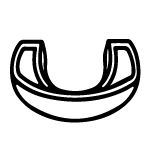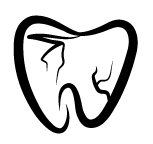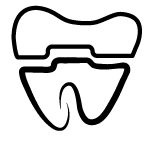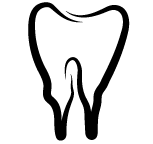Dental Emergencies Can Happen at
All Hours
Call us immediately if you are experiencing fever, swelling, or pain that is interfering with your normal activities. Until you can make it to our office, you can take steps to make yourself more comfortable and minimize the damage. If you, or a friend, have a dental emergency, the sooner you call us, the sooner we can help you.
Recent research by the American Dental Association has shown that 400mg of Ibuprofen taken at the same time as 1000mg of Acetaminophen is very effective for pain control for 4 to 6 hours. The ADA also recommends 200mg of Ibuprofen and 500mg of Acetaminophen. Ibuprofen is the same as Motrin or Advil. Acetaminophen 500mg is the equivalent of 1 Extra Strength Tylenol.
During regular office hours:
For dental emergencies after hours:
Emergency Prevention
The best possible solution to an emergency is to avoid it. Of course, no one chooses to have an injury, toothache, or other painful dental problem, but you may be surprised to learn how often emergencies can be avoided. In some situations, proper safety precautions can prevent injuries. Our family dentist offers custom mouth guards for kids and adults, which are an essential part of protective gear in contact sports.
Tips for Avoiding Emergencies

Wear a mouth guard when playing sports

Maintain good oral hygiene and see your dentist regularly

Follow care and maintenance instructions for any dental application
Seek treatment for cavities, toothaches, and other minor dental problems early
Additionally, severe pain, abscesses, and teeth that break during normal use often result from dental neglect. Untreated cavities and oral disease are often painless at first, making it tempting to postpone seeing a dentist. However, dental problems are progressive. Early treatment usually involves minor procedures, which can be scheduled at your convenience. Ignoring the problem leads to more painful, costly, and extensive dental problems, which often manifest at the most inopportune times.
Types of Dental Emergencies

Apply pressure using a small piece of sterile gauze to slow bleeding.

Clove oil or dental pain reliever such as Anbesol can be applied topically. Do not hold oral medication against the gums as it can cause burning.

Rinse the tooth gently, taking care not to disturb any attached tissues. Reinsert it in the socket if possible, or keep it in a clean container of milk and see a dentist ASAP.

An ice pack applied externally can help control swelling and ease pain.

Sugarless gum or dental adhesive can temporarily cover exposed nerves. Dental crowns can sometimes be held in place with denture adhesive or toothpaste, but never use glue.

Save any pieces and bring them to the office with you.
Remember, in cases of a dental emergency – or better yet, before an emergency occurs, call Dr. Stephen Wood Dentistry.
During normal business hours, you can reach us at (210) 558-3133. For after hour emergencies, please call 210-844-4453. Our emergency dentist is ready to serve you!







